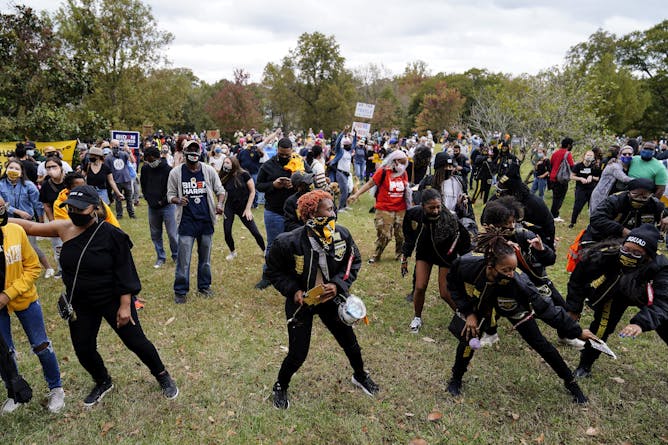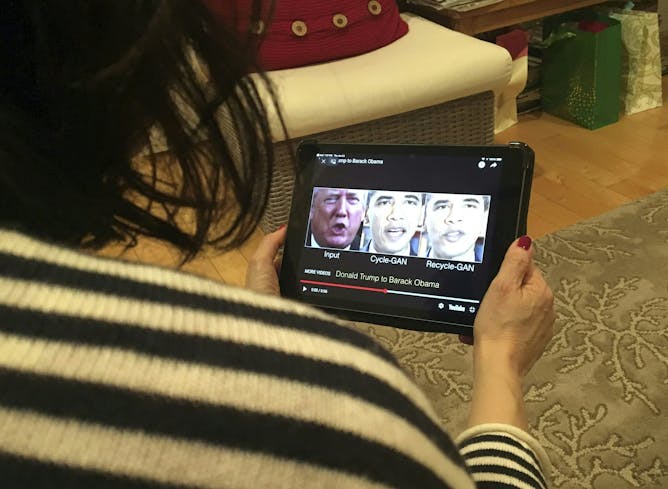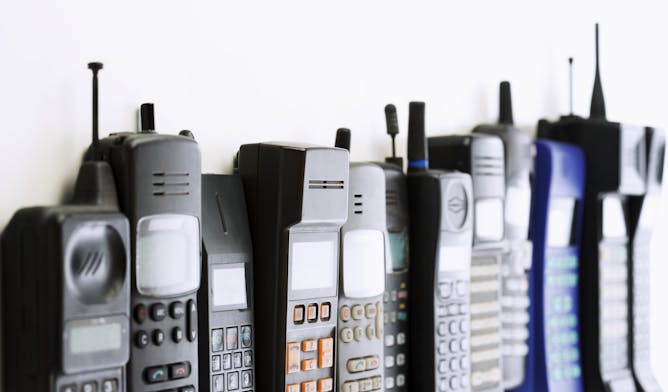|
Joe Biden is the first Democratic presidential candidate to win Georgia since 1992. But the seeds of this change were sown as far back as Reconstruction, after the Civil War – and waves of civil rights activists tended them through the 20th century.
Bev-Freda Jackson, a scholar of race and politics at American University’s School of Public Affairs, explains how a large movement of Black voters made the difference. Their numbers soared in what might seem like two years, but that happened only because of decades of community organizing and voter education in Georgia.
This week we also liked articles about managing information overload, the rarity of women being depicted as violent and what monoclonal antibodies are.
|

In Atlanta, people gather to dance and celebrate the election of Joe Biden as the next president.
AP Photo/Brynn Anderson
Bev-Freda Jackson, American University School of Public Affairs
A set of efforts that registered 800,000 new voters since 2018 may have been the key to Georgia turning blue in a presidential election for the first time since 1992.
|

A woman views a manipulated video that changes what is said by President Donald Trump and former President Barack Obama.
ROB LEVER/AFP via Getty Images
Mark Satta, Wayne State University
A philosopher writes about why many of us are feeling tired with the constant onslaught of information coming at us.
|

Artemisia Gentileschi’s ‘Judith Beheading Holofernes.’
Google Art Project
Jessica Trisko Darden, American University School of International Service; Izabela Steflja, Tulane University
Women continue to be stereotyped as passive and meek. For this reason, international courts often let women war criminals off the hook.
|
|
|
-
Rodney E. Rohde, Texas State University
Monoclonal antibodies are synthetic molecules manufactured in the lab. But do we need them if a vaccine is on its way?
-
Shelly Miller, University of Colorado Boulder
Being indoors with other people is a recipe for spreading the coronavirus. But removing airborne particles through proper ventilation and air filtration can reduce some of that risk.
-
Lauren Hughes, University of Colorado Anschutz Medical Campus; Jennifer Bacani McKenney, University of Kansas
Hospitals are losing staff to quarantines as rural COVID-19 cases rise, and administrators fear flu season will make it worse. And then there's the politics.
|
|

Cellular networks have improved rapidly over the last few decades.
moodboard via Getty Images
Daniel Bliss, Arizona State University
A professor of wireless communications explains the origins of cellular networks and how they evolved into today's 5G networks.
|